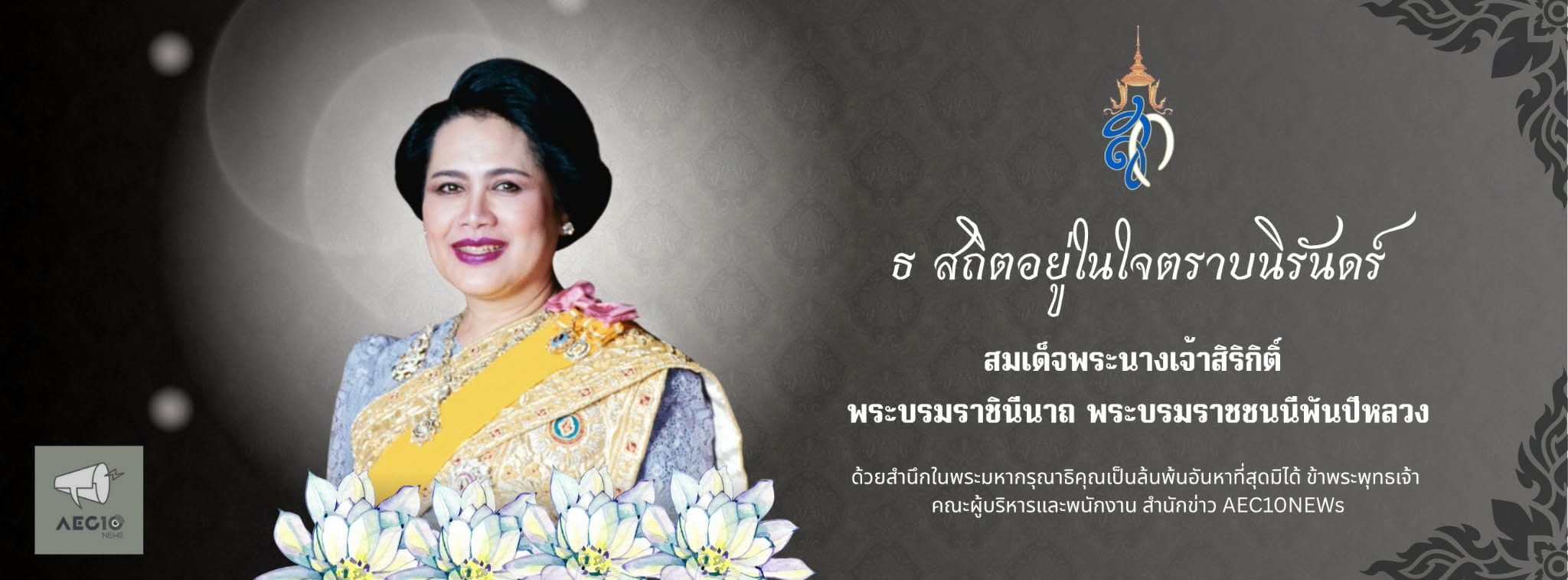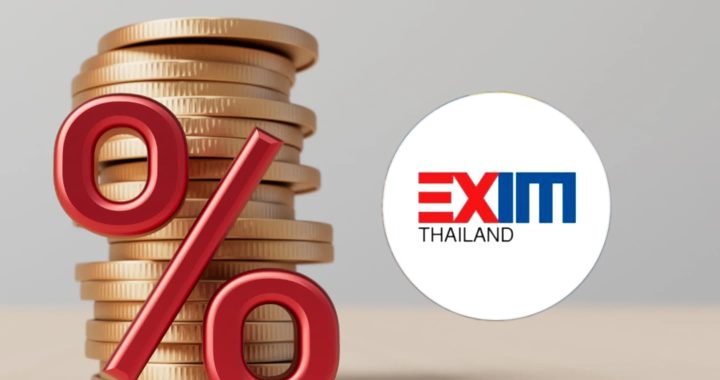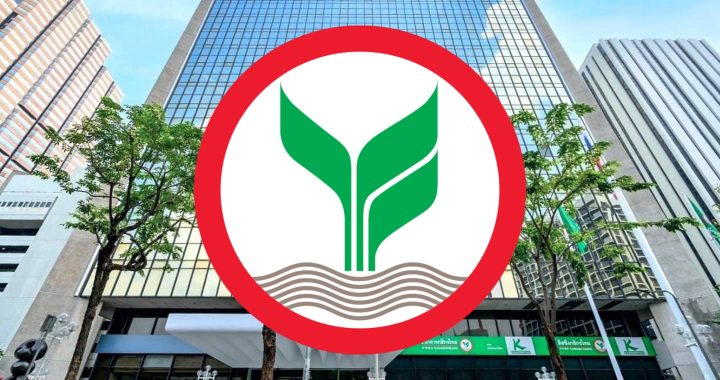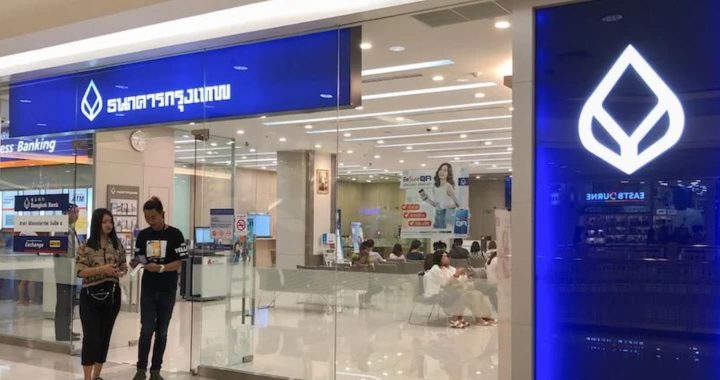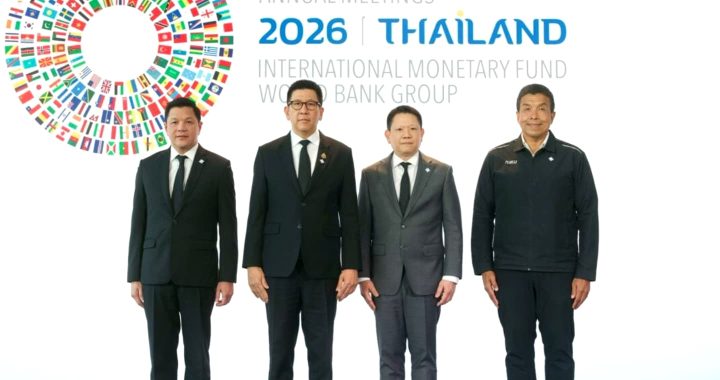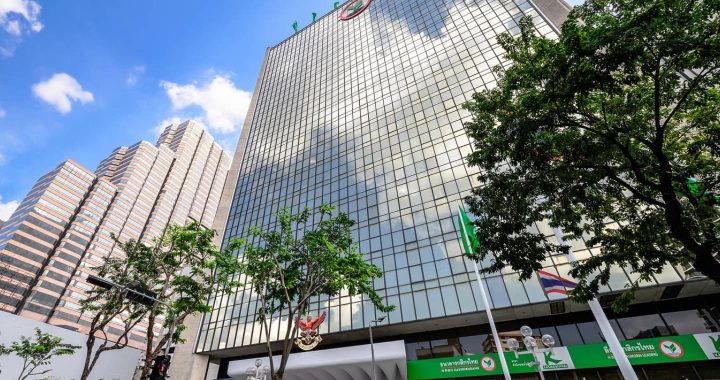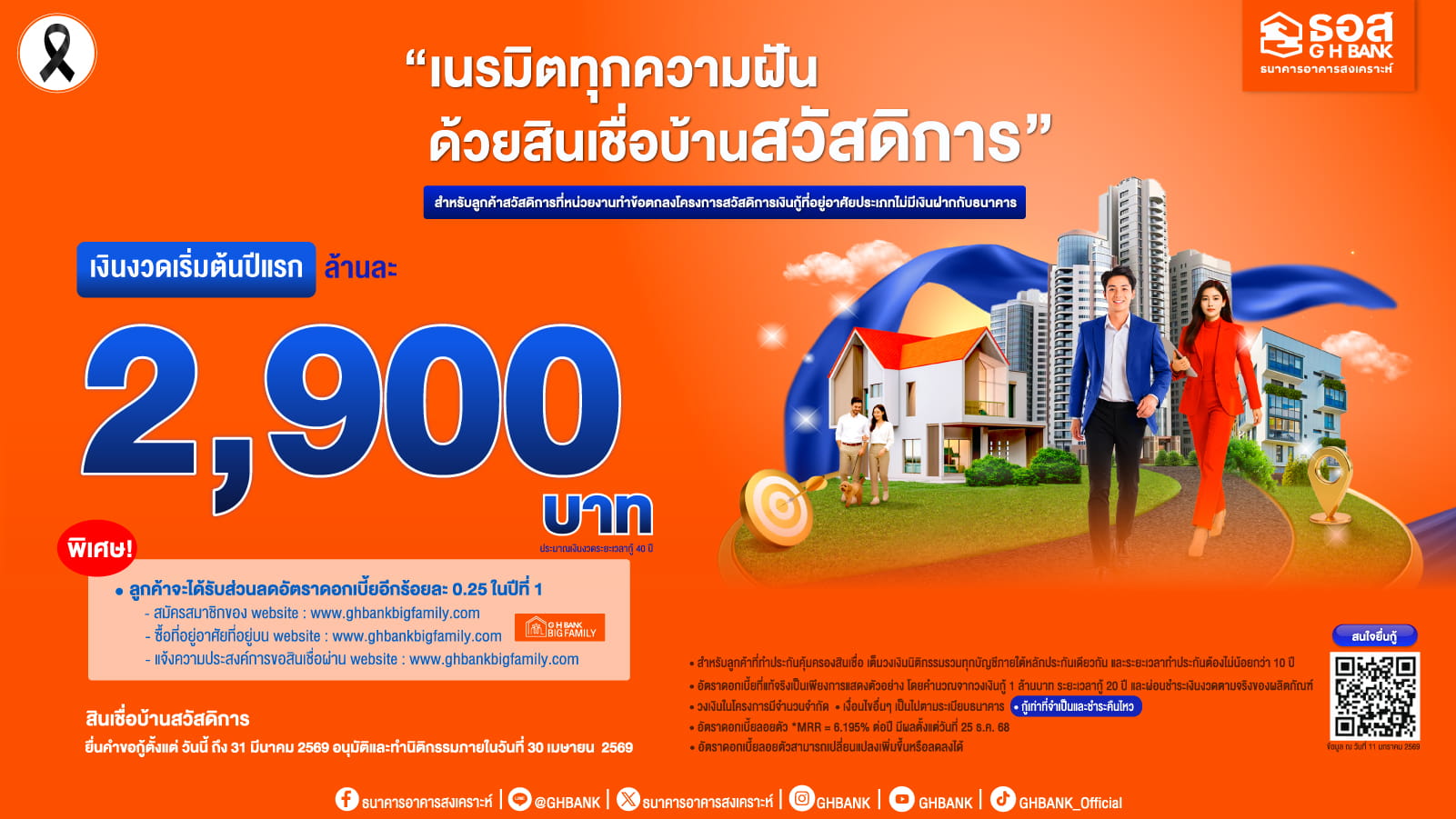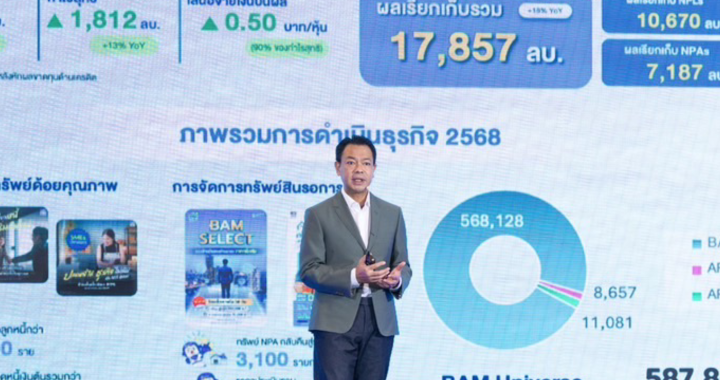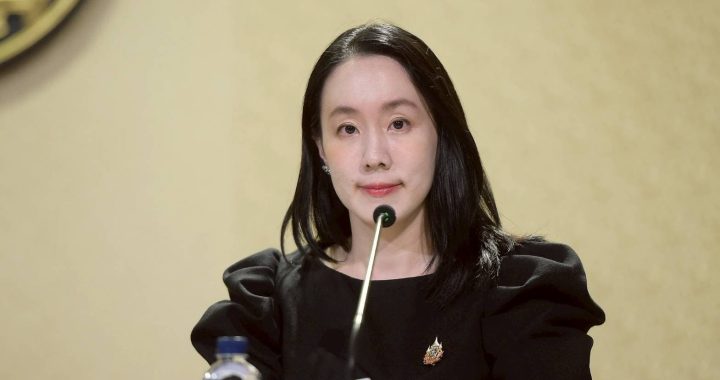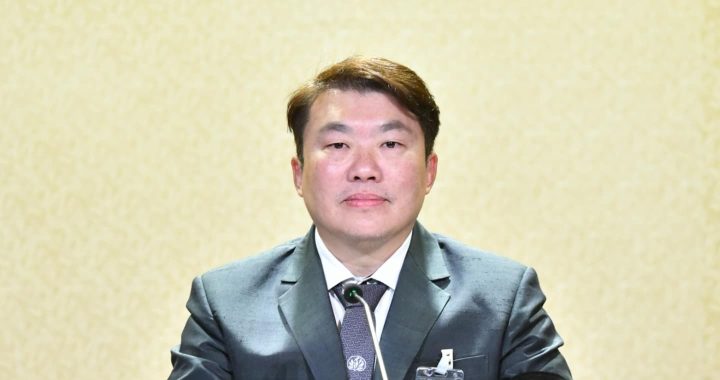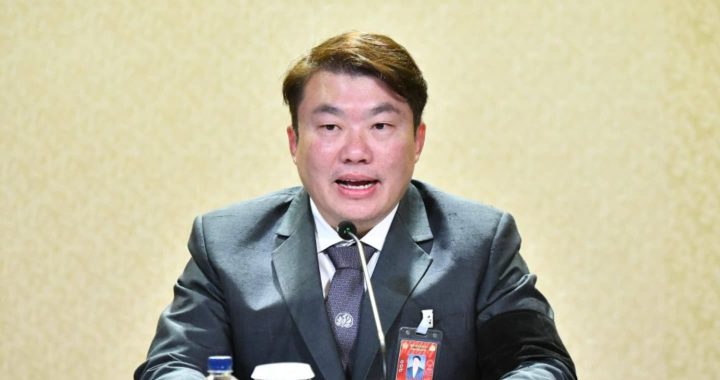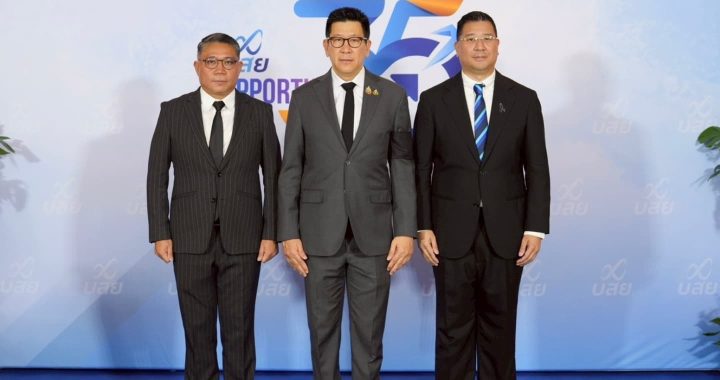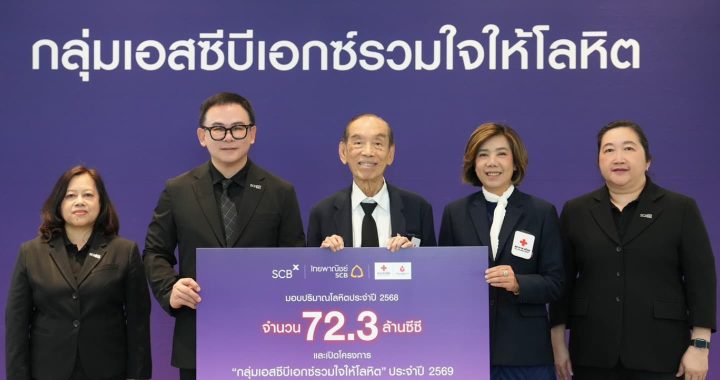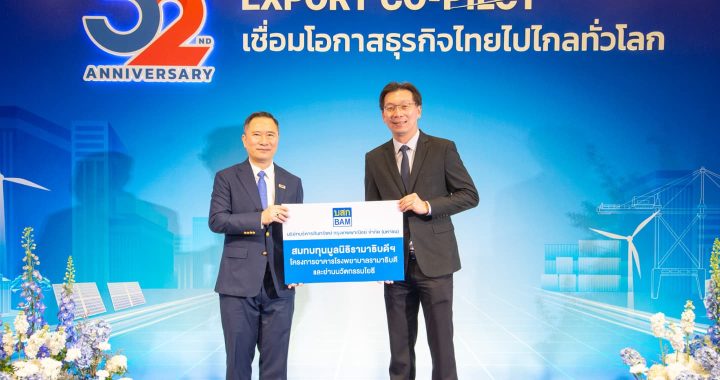KResearch expects Thailand’s economy will grow at 1.4 percent in 2025
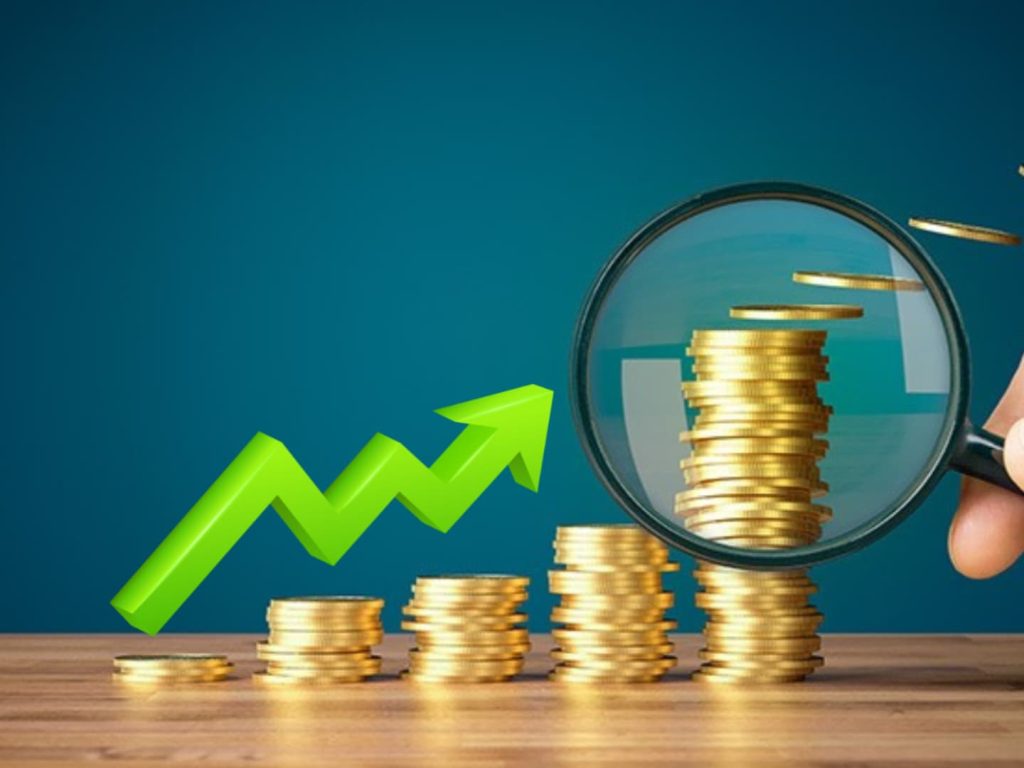
KASIKORN RESEARCH CENTER (KResearch) projects that the Thai economy will grow at 1.4 percent in 2025 despite ongoing risks that may arise from a technical recession due to the US import tariffs, the export sector, competition with imported goods, a decline in the number of international tourist arrivals, shrinking automobile sales, slowing credit growth, and concerns over non-performing loans. However, if the US import tariffs on many countries remain at 10 percent during the rest of the year, Thailand’s exports are expected to see growth of 0.5 percent, and the overall economy may grow at 1.8 percent.
Mr. Burin Adulwattana, Managing Director and Chief Economist, KASIKORN RESEARCH CENTER Co., Ltd., said that the uncertainty surrounding President Trump’s import tariff policy has affected global trade, investment, and the economy. The Organization for Economic Co-operation and Development (OECD) recently lowered its global GDP growth forecast for 2025 by 0.2 percent to 2.9 percent, as well as cutting its US economic growth forecast for 2025 by 0.6 percent to 1.6 percent, against the figure projected in March 2025. The uncertainty surrounding US policiesregarding trade, finance, fiscal matters, education, and domestic politics has significantly eroded investor confidence towards the US dollar’s value and stability, as well as the potential of the US economy. The greenback has depreciated by more than 8 percent since President Trump took office, while US government bond yields have increased.
Meanwhile, the US Federal Reserve (Fed) must continue to implement its policies cautiously amid the dual risks of potential acceleration in inflation from tariff hikes and economic slowdown despite the pressure to cut the policy rate.
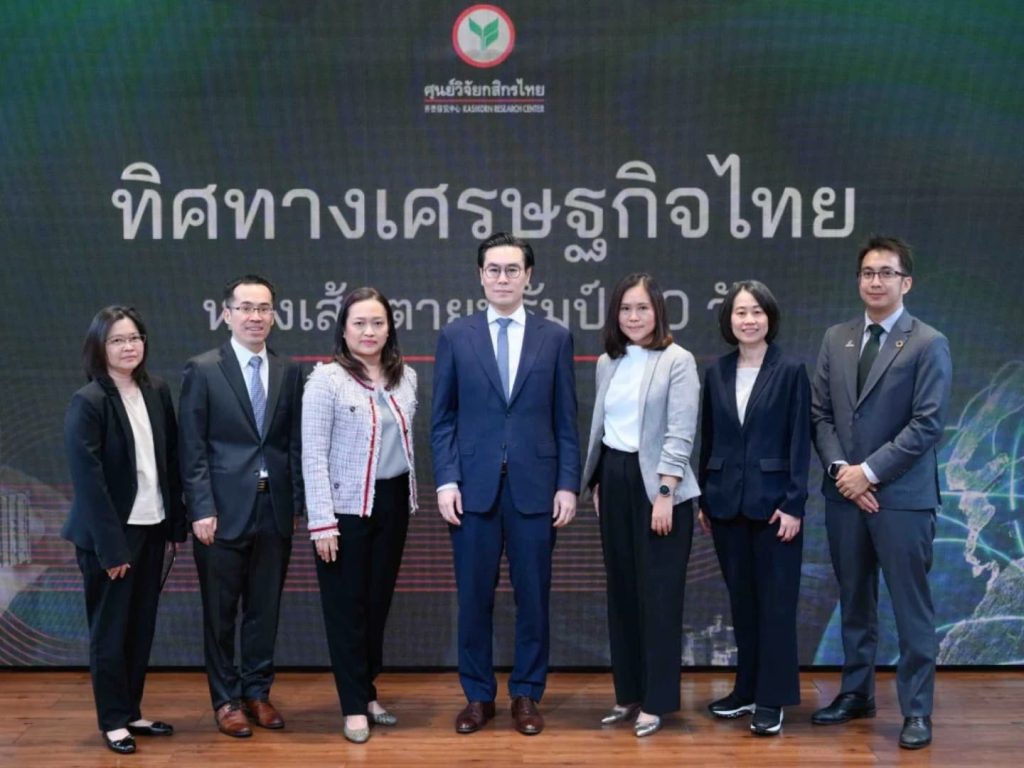
Ms. Nattaporn Triratanasirikul, KResearch Deputy Managing Director, expects that the uncertainty surrounding US import tariffs will remain high even after the temporary delay ends on July 9, 2025. This has led KResearch to maintain its Thai economic growth forecast for 2025 at 1.4 percent. Looking into the second half of 2025, the Thai economy may still face a risk of technical recession. However, if the US import tariff rate remains at 10 percent across almost all countries for the rest of 2025, Thai exports are expected to see growth of 0.5 percent, and the Thai economy may grow at 1.8 percent.
Ms. Kevalin Wangpichayasuk, KResearch Deputy Managing Director, is of the view that the unclear US import tariff policy would lead to a continued contraction in industrial production due to the risks stemming from exports to the US and China, particularly in sectors such as electronics, auto parts, machinery, steel, plastic products, and chemicals. This also includes competition with imported goods. The proportion of import value of consumer goods to total retail sales in 2025 is projected to exceed 30 percent. Meanwhile, the number of foreign tourist arrivals this year is expected to drop for the first time in three years.
Dr. Rujipun Assarut, KResearch Assistant Managing Director,views that domestic car sales will contract further in the second half of the year by -1.7 percent YoY, compared to -1.0 percent YoY in the first half. This is due to a sluggish economy and stricter lending criteria, despite positive momentum from accelerating sales of battery electric vehicles (BEVs) driven by price competition from Chinese automakers. Meanwhile, agricultural income is expected to decline due to pressure from falling prices and reduced demand for farm products, along with heightened competition in the global agricultural market.
Dr. Kangana Chockpisansin, Head – Research at KResearch, added that fundraising in the private sector remains muted due to slowing credit demand, rising debt repayments, and ongoing concerns among financial institutions over non-performing loans (NPLs). KResearch has thus revised down its forecast for loan growth in the Thai banking system this year to -0.6 percent, from an earlier projection of 0.6 percent. At the same time, KResearch views that NPLs are still on an upward trend, although the ratio may not exceed 3 percent of total loans. Financial institutions will continue to expedite the management of NPLs and delinquent debts through debt restructuring and selling off bad debts.
Dr. Krit Sitathani, KResearch Assistant Managing Director, added that Thai private sector ESG activities have also slowed amid several negative factors, especially the declining issuance of sustainable finance bonds, with some shifting to using green credit services from commercial banks. Data indicates that this line of service will continue to expand. Meanwhile, groups still raising funds may focus on large businesses through project finance with existing fundraising plans. At the same time, SMEs are likely to delay their plans or focus on investing in activities related to solar panels, energy savings, or battery electric vehicles (BEVs), which show relatively clear short-term cost-effectiveness.
KResearch added that to cope with the more uncertain economic direction in the second half of 2025, the government should focus on efficient budget utilization, implement necessary short-term measures, and place greater emphasis on long-term measures to restructure Thailand’s economy. As for the immediate remedial measures to cushion the impact on manufacturers affected by the US tariff hikes, efforts must focus on promoting local content and made in Thailand products, urgently restoring tourist confidence, and stimulating key tourist markets. Meanwhile, businesses are advised to maintain their cashflows to brace for high uncertainty.
กสิกรไทยยังลุ้นเศรษฐกิจปีนี้ มองบวก 1.4%
